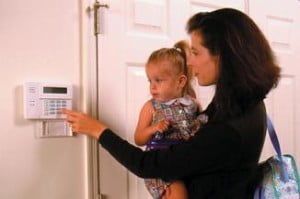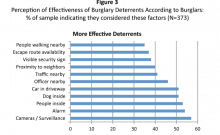How can I prevent false alarms?
- Have all users practice canceling an accidental alarm. Call ahead to the monitoring station to have the system put into a test mode. This will ensure the police are not sent during testing.
- Be very careful when entering the last number of your code. In some systems, if entered incorrectly, it can send a silent panic signal.
- Don’t try to beat the system. If you need to re-enter after arming your system, disarm and rearm the system again. Don’t rely on the entry or exit delay time to give you enough time to get in and out. Have the monitoring station adjust the entry or exit delay time if you don’t have enough time when entering or leaving the premise.
- Call the monitoring center if you hire domestic help. On most systems, we can easily add a special keypad code for that person to use.
- Keep motion detectors, clear of insects and spider webs.
- Check for drafts that can move plants, curtains, signs, holiday decorations, helium balloons, and other things in motion sensor areas. Fans, heaters, air conditioners, and ceiling fans can cause drafts.
- Change batteries regularly on wireless devices.
- Regularly test your alarm system to make sure that it’s functioning properly and you are arming it correctly. Don’t forget to contact your monitoring center first so they may put your system in a test mode.
- Supervise and confine pets to areas without motion sensors. When the system is designed, choose other protection other than motion detectors if you have pets such as glassbreak detectors and door or window contacts.
- Check to make sure protected doors fit and latch securely. Loose fitting doors can cause alarms when there are high wind conditions. When you leave, make sure the door is tightly closed.
- Call your monitoring station if you are planning remodeling projects, changing phone systems, installing skylights, ceiling fans, or if you are spray painting or fumigating.
- Keep your notification list current and include homeowner’s cell phones. We then can call these numbers before the police if instructed to avoid unnecessary dispatches.
- Upgrade aging or outdated equipment. Older systems are more prone to false alarms. Alarm wiring should also be checked to see if it needs to be replaced.





